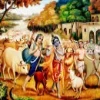Introduction to Vedas
Vedas are the most ancient and sacred texts of Hinduism, which are considered "Apaurusheya" (not composed by humans) and "Shruti" (knowledge received by hearing). The Vedas were compiled by Maharishi Ved Vyas in four parts:
- Rig Veda: The oldest Veda, which contains praises of gods, prayers and descriptions of the glory of nature.
- Yajur Veda: It contains methods of Yagya, rituals and rituals.
- Sama Veda: It contains musical mantras, which were used especially in Yagyas.
- Atharvaveda: It mentions various topics related to medicine, social policy, magic and life.
Importance of Vedas in Hinduism
Foundation of Sanatan Dharma
Vedas are the basic source of Hinduism, which contain the principles of Brahma (ultimate truth), Dharma, Karma and Moksha.
Knowledge and Science
Astronomy, Mathematics, Ayurveda, Metallurgy, Cosmology, Vastu Shastra etc. are mentioned in the Vedas.
Rig Veda provides important information about the solar system, earth, water cycle and weather.
Yagna and Puja Method
Yajur Veda contains the methods of Yagyas, which are the foundation of Hindu religious rituals.
The tradition of Havan, Sankalp, Prayer, Mantra Jaap and Yagya in Hindu culture has developed from the Vedas.
Development of Music and Art
Samveda is considered to be the original source of Indian music.
Many traditions of classical music and dance are based on Samveda.
Ethics and Morality
Vedas teach truth, non-violence, religion, morality and self-knowledge.
Principles like "Satyameva Jayate" are taken from Vedas.
Spirituality and Path to Moksha
Upanishads (which are the last part of Vedas) explain the deep secrets of soul, Brahma, reincarnation and salvation.
Bhagavad Gita and other Hindu scriptures have their roots in Vedas.
Social Structure
Vedas describe the Varnashram system, in which a person is given a place in the society on the basis of his deeds and qualities.
It determines duties for the welfare of the society.
Vedas are not only the spiritual basis of Hinduism, but they are the source of knowledge, science, ethics, music, and yoga for the entire humanity. They are called the "Mother of All Knowledge". Studying the Vedas and following their principles paves the way to elevate life and achieve spiritual advancement.







